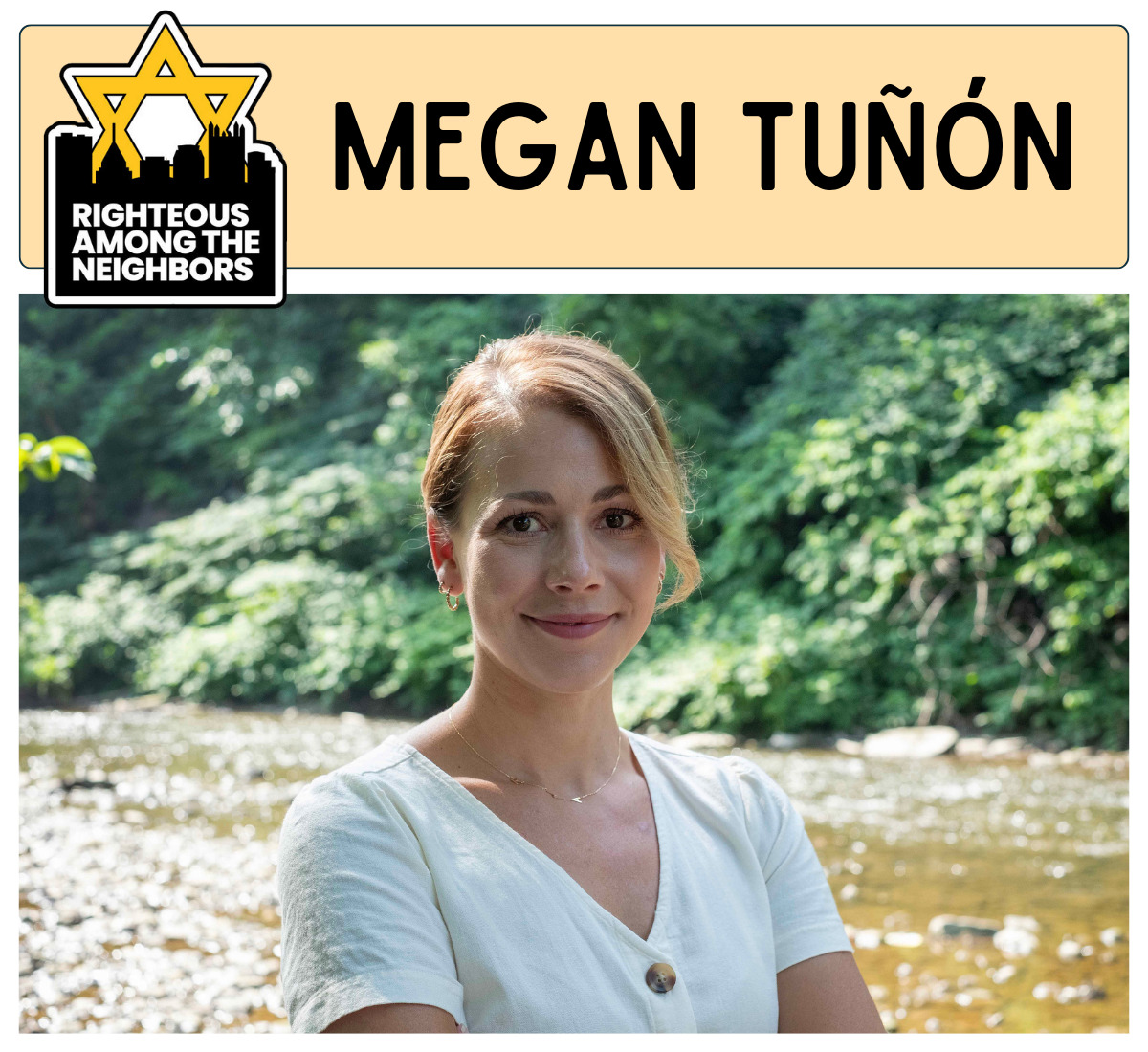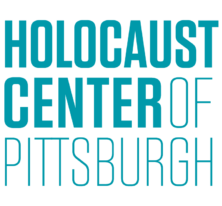
Photo by Brian Cohen
Profile by Madeline Zerega

There are about 3,400 hundred people, six Christian churches and zero synagogues in Etna, Pennsylvania. But according to Etna Community Organizer Megan Tuñón, Etna is a critical place to raise awareness about responding to antisemitism.
Vice President of the Etna Borough Municipal Council, Tuñón also established and runs the Etna Community Organization, a nonprofit that stemmed from the community’s environmental sustainability initiative called Ecodistrict. She has been recognized as a Righteous Among the Neighbors recipient for leading her community in combating acts of antisemitism.
Tuñón’s first call to action was when a local renter hung a swastika flag outside of his home in January 2022, provoking fear and concern from residents. Although Tuñón and the council brought the issue to the authorities, interfering with the individual’s private property would be illegal under the First Amendment Constitutional right to free speech.
Instead, Tuñón and Etna councilwomen Alice Gabriel and Jessica Semler organized an “Etna is for Everyone” yard sign campaign to combat the display of hate speech. By bringing the community together, they were able to raise money for over 200 yard signs that countered the antisemitic flag with messages of strength and unity.
“It was really incredible because it reached people who we had not reached previously through our community work,” Tuñón said. “That was January 2022, and you can still drive around and see all those signs.”
While the yard sign campaign was ultimately very successful, Tuñón and other municipal leaders pushed forward with messages of inclusivity. They contacted local Jewish leaders to host a Countering Antisemitism community meeting for all residents in Etna. Presented by Shawn Brokos of the Jewish Federation of Pittsburgh, the meeting included representatives from the Holocaust Center of Pittsburgh, the 10.27 Healing Partnership, the LIGHT Education Initiative and Pennsylvania State Senators and Representatives, as well as priests and pastors from the community and several students from Shaler Area High School.
Tuñón feels that this community meeting was crucial in the process of combating antisemitic hate because it included members of the Jewish community as well as gentile allies coming to support.
“What I learned from working with the Jewish Federation is that often it falls on Jewish people to do the responding, and it’s very unfair, especially when you consider what a small fraction of the population the Jewish community actually is,” Tuñón said. “So I think it really takes everybody to come together and stand up.”
While Tuñón played a central role in initiating and organizing these efforts, she emphasizes that her task was mainly to gather a group of individuals who could relate to and speak on the hate in her community from a more personal level.
“It’s a fine line to walk, because as a [non-Jewish] woman I don’t want to overstep in a space where I’m not as aware of the issues as a Jewish person would be,” Tuñón said. “It’s my role to lead the community through different programs, so I did feel like that was a responsibility I had. But, at the same time, we reached out to people in the Jewish community to take the lead on the messaging so that it was appropriate. I think it’s more important for [people] to be allies and support marginalized communities and make sure that they have the platform, the spaces, the voice to address their concerns.”
Although the majority of people acknowledge what a clear symbol of hate a swastika is, some individuals began to question why such action was being taken against a seemingly miniscule act.
“These things are becoming normalized and swept under the rug without repercussions, so I think it’s important for every community to come together and stand up,” Tuñón said. “And I see that in our community: lots of people of different faiths wanting to come together to support their neighbors.”
Tuñón and the council took similar action when racist graffiti was displayed in the community a while later. Instead of drawing more attention to the perpetrator and the actual act of hate, she focused on educating the community on the larger issue and ways to use art in a positive way.
While part of Tuñón’s job is to take leadership and serve the community, she believes that everyone should work to combat hate no matter what their role may be.
“Find your partners. It can be scary to stand up when there’s a person who might be acting on feelings of hate,” Tuñón said. “It can be vulnerable to put yourself out in front of that because you don’t know what the reaction will be. So definitely find your partners: local organizations in your community, local elected officials in your community who have that authority, have that voice. Bring your neighbors together so you don’t have to do it alone.”
